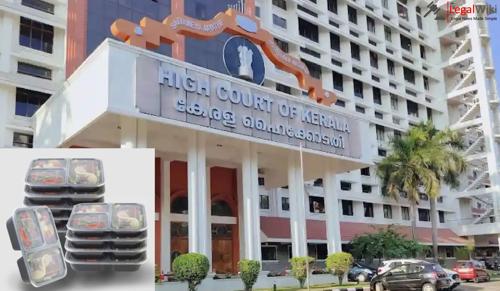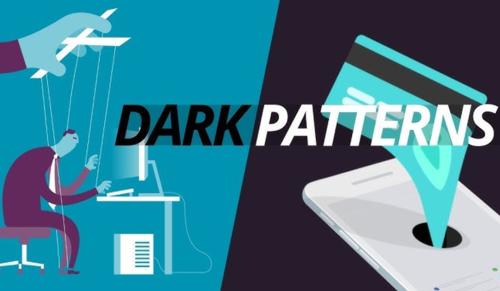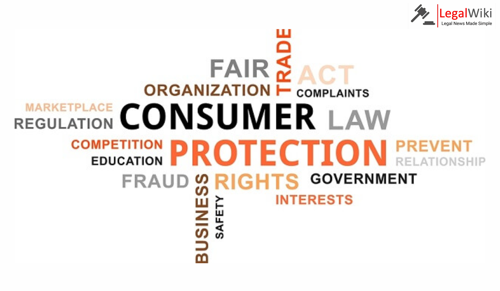
Consumer Court Fines Textile Dealer with ₹35,500 For Selling Defective Sari
The Ernakulam District Consumer Disputes Redressal Commission directed IHA Designs to pay ₹36,500 to Joseph Niclavose for mental agony and loss caused due to the discolouration of his engagement sari.
The complainant had purchased a pink sari for the ceremony, which reportedly lost colour during the function, leading to embarrassment.
Despite raising complaints and serving a legal notice, the seller refused to replace or refund the defective product.
The Commission held this to be an unfair trade practice and a deficiency in service, awarding ₹16,500 as a refund, ₹15,000 as compensation, and ₹5,000 towards legal expenses.
MalavikaBookmark

SpiceJet to Pay ₹25,000 Compensation to Passenger for issuing Wrong Ticket
The Mumbai District Consumer Commission directed SpiceJet to pay ₹25,000 compensation to a senior citizen whose return ticket was incorrectly issued during a reroute in December 2020 .
The passenger booked a Mumbai-Darbhanga round trip; the return flight was cancelled due to bad weather. SpiceJet arranged a connecting flight via Patna and Kolkata, but the connecting flight from Kolkata was scheduled before his arrival, causing him to miss his PhD exam .
The Commission held SpiceJet liable for deficient service under the Consumer Protection Act, 2019, citing mental harassment and negligence, while noting partial responsibility of the passenger for not verifying the ticket earlier.
AsleshaBookmark

Consumer Commission Slaps ₹40,000 Costs on Man for Suing Hyundai After Selling Damaged Vehicle
- Case Name: Sri Mohan Hegde v. Hyundai Motors India Ltd. & Ors
The District Consumer Disputes Redressal Commission in Bengaluru dismissed Mr. Hegde’s complaint against Hyundai for repair, replacement, or compensation, after it was found he had sold the damaged vehicle for ₹88,000 and received ₹3 lakh in insurance, facts he concealed in his petition.
The DCDRC observed that the customer should have been told that his rights over the car would cease immediately after such a sale.
The bench concluded the suit was driven by mala fide intent and waste of judicial time, imposing a ₹40,000 cost to the Consumer Welfare Fund plus 10% interest.
The complaint was dismissed as “not admissible.”
AsleshaBookmark

NCDRC: Burden of Proof Lies on Complainant To Prove Negligence, Injury, and Causation in Medical Cases
The National Consumer Disputes Redressal Commission (NCDRC) has ruled that in medical negligence cases, the burden to prove breach of duty, resulting injury, and causation lies on the complainant.
The decision came while allowing an appeal filed by Fortis Hospital against a ₹15 lakh compensation order from a lower forum in a medical negligence case.
The NCDRC observed that courts must not assume negligence merely because the outcome was unfavorable.
The court emphasized the need for expert evidence and a clear linkage between medical conduct and injury.
23 days ago
YashashviBookmark

Kerala High Court Seeks Review of Microplastic in Food Through Delivery Containers
- Case Name: Prasanna EV v. State of Kerala & Ors
The Kerala High Court has raised concern over the common use of plastic containers for food delivery, warning of serious health hazards due to microplastic ingestion.
The Court highlighted that hot food packed in plastic may release microplastics into the food, which could lead to long-term health issues like cancer and organ damage, and potentially neurological issues.
Concerned about the growing reliance on food delivery, especially by young people, the Court asked the Additional Director General of Prosecution to investigate the matter.
Authorities have been directed to assess the risks and submit suggestions. The matter will be heard next on June 13, 2025. (Prasanna EV v. State of Kerala & Ors)
26 days ago
MansiBookmark

Is it Legal to Mention a Non-Compete Clause in an Employment Contract?
Yes, it is legal to mention a non-compete clause in an employment contract in India.
Employers use it to stop employees from joining competitors or starting a similar business. However, as per Section 27 of the Indian Contract Act, 1872, any agreement that restrains trade is generally void.
Indian courts, including in Niranjan Shankar Golikari v. Century Spinning (1967) and Percept D'Mark v. Zaheer Khan (2006), have held that non-compete clauses are valid only during employment, not after it ends.
Post-employment restrictions are mostly unenforceable as they can violate an employee's right to earn a living.
26 days ago
YashashviBookmark

Madras High Court Orders Tamil Nadu Govt to Act Against Cinema Overcharging After New Movie's Release
The Madras High Court directed the government-formed committee to act against theatre owners charging ticket prices above government-fixed rates, especially during new movie releases.
The Court was hearing a plea by Devarajan, who alleged overcharging by Chennai theatres and sought refunds.
The state informed the Court that a monitoring committee is already in place to inspect theatres and recommend action.
While disposing of the petition, the Court ordered that any excess amount collected must be refunded to the customers and emphasised the enforcement of existing cinema pricing rules and redressal mechanisms for public complaints. (G Devarajan V The Special Tahsildar and Others)
AditiBookmark

What are Dark Patterns in E-Commerce?
Dark patterns are deceptive design practices used on websites or apps to manipulate consumer choices, often leading users to spend more money, share more data, or make unintended purchases.
Examples include false urgency (like “only 1 left!”), basket sneaking (adding extra items), or confirm shaming (guilt-tripping during opt-out).
These patterns are now prohibited under the Guidelines for Prevention and Regulation of Dark Patterns, 2023, and violate the Consumer Protection Act, 2019, and E-Commerce Rules, 2020, making them legally punishable.
28 days ago
MansiBookmark

CCPA Issues Advisory to E-Commerce Platforms to Self Audit Dark Patterns within 3 Months
The Central Consumer Protection Authority (CCPA) has issued an advisory to all e-commerce websites to remove “dark patterns” designed to mislead users.
Dark patterns are manipulative tricks employed by a company to convince you to buy a higher-priced product or service than you otherwise would have.
These tricks violate the Guidelines for Prevention and Regulation of Dark Patterns, 2023, which specify 13 dark patterns like False urgency, Basket Sneaking, Confirm shaming, etc. They also violate the Consumer Protection Act, 2019, and E-Commerce Rules, 2020.
Companies must check their websites or apps and fix such issues within three months and submit a report. A special committee has also been formed to create awareness amongst the consumers.
AditiBookmark

Why Would a Vegetarian Order From Non-Veg Serving Eatery if it Hurts Sentiments, Asks Consumer Panel
A Mumbai Consumer Commission has dismissed a ₹6 lakh compensation plea from two strict vegetarians who were served chicken momos at a Wow Momos outlet in December 2020.
The court noted the invoice showed a non-veg order and that the fast food outlet’s display board indicated both veg and non‑veg options. The court held that a prudent person could distinguish veg from non-veg food before consuming.
The complainants failed to prove harm to religious sentiments or loss of ritual benefits and did not establish negligence.
The company asserted transparency in its menu and alleged that the complainants created a nuisance despite receiving a refund. The next hearing is scheduled for July 10, 2025.
MansiBookmark

Delhi State Commission Orders SpiceJet to Pay 1.5 Lakh to Passenger for Failure to Deliver Checked-in Baggage
The Delhi Consumer Disputes Redressal Commission has held SpiceJet negligent for losing a passenger's checked-in baggage during an International flight from Kathmandu to New Delhi.
The Commission ruled that airlines must ensure a safe delivery of luggage during a flight.
The Commission ordered SpiceJet to pay ₹ 1,50,000 compensation for the mental agony and litigation costs the passenger incurred.
The airline failed to provide any valid explanation for failing to deliver the passenger's baggage.
30 days ago
AshrithaBookmark

Government Plans To Take Legal Action Against E-Commerce Giants for Selling Unsafe, Uncertified Products
The Indian government is set to initiate legal action against major e-commerce platforms like Amazon, Flipkart, Meesho, Myntra, and BigBasket for selling unsafe and uncertified products.
This follows raids by the Bureau of Indian Standards (BIS), where around 15,000 items—including toys, kitchen tools, and electrical goods—were seized from warehouses across multiple cities.
These products lacked mandatory BIS certification or carried fake ISI marks, violating Section 17 of the BIS Act, 2016.
Violators may face penalties including fines up to ten times the product value and imprisonment.
YashashviBookmark

Tirupati Temple Takes Legal Action Against Unauthorised Sale of Tirupati Laddus
The Tirumala Tirupati Devasthanams (TTD), which manages the Tirupati temple, has initiated legal action against various entities for the unauthorised sale of Tirupati Laddus, a sacred offering bearing a Geographical Indication (GI) tag.
TTD clarified that these laddus are exclusively prepared within the temple premises and are not for commercial sale.
A U.S.based e-commerce platform, PushMyCart, falsely listed TTD as a vendor, triggering a legal notice. Following this, several sellers withdrew the listings.
TTD warned that misuse of the laddu’s name damages its spiritual value and promised to protect the temple’s reputation and the faith of devotees.
AditiBookmark

Karnataka Consumer Commission Orders Sangeetha Mobiles to Compensate Customer for Defective Phone
The Karnataka State Consumer Disputes Redressal Commission directed Sangeetha Mobiles to compensate a customer for selling a defective smartphone and failing to address the issue adequately.
The complainant had purchased a new phone worth ₹84,000 with an insurance policy that exhibited technical issues shortly after purchase. Despite multiple service visits, the problem persisted, leading the customer to approach the consumer commission.
The commission found Sangeetha Mobiles negligent in providing proper after-sales service and ordered the company to refund the phone's cost and an additional 20,000 compensation for mental agony and litigation expenses.
YashashviBookmark

Kerala Consumer Court Directs Railway to Compensate ₹50,000 to Passengers for Train Delay
A Kerala Consumer Court has ordered Southern Railway to pay ₹50,000 as compensation to five passengers who missed their connecting train due to an unexplained delay in the Maveli Express.
The passengers were en route to a temple pilgrimage and suffered mental distress after the delay disrupted their travel plans.
The Court observed that the Railways failed to provide a valid reason for the delay and stressed that public transport services must improve service standards and cannot leave passengers helpless at the mercy of delays without justification. (Ravikrishnan NR & Ors. v. Southern Railway)
a month ago
AshrithaBookmark
